Inebriation and Intoxicants
Make wine now for children’s parties!
Mason's wine essence was non-alcoholic. But even so, it seems a bit odd that it was marketed as a children's drink.I can't find a description of what, specifically, it was. Although, by the name, I'm assuming it was wine that had been reduced by slow boiling to a syrup. By then adding water to the syrup, one could make a non-alcoholic wine.

Circa 1900 - via Advertising Archives

Posted By: Alex - Fri Mar 12, 2021 -
Comments (3)
Category: Inebriation and Intoxicants, Advertising, Children, 1900s
American Airlines Wine Club
Fans of mile-high drinking can now get a taste of the same experience at home thanks to the new American Airlines Wine Club. For $99 a month, members get three bottles of some of the wines served inflight shipped to them each month.I'm sure it's good wine. For $33 a bottle, it better be. But it seems to me like a weird extension of the American Airlines' brand. Although as an economy flyer I associate air travel with misery and discomfort. Perhaps if I flew first-class I'd feel differently.

via Retail Therapy
Posted By: Alex - Thu Jan 28, 2021 -
Comments (5)
Category: Clubs, Fraternities and Other Self-selecting Organizations, Inebriation and Intoxicants, Air Travel and Airlines, Alcohol
Lobster Lovers Beer
I spotted this beer while visiting an international food market in my neighborhood and was intrigued both by the name and by the image of a woman with a giant lobster on her back.Further research reveals that it's a Lithuanian beer, and it receives pretty bad reviews on beeradvocate.com, such as the following:
Somewhat creamy despite noticeable alcohol and rather unpleasant character,
I don't see any connection to lobster. Whatever.,,,
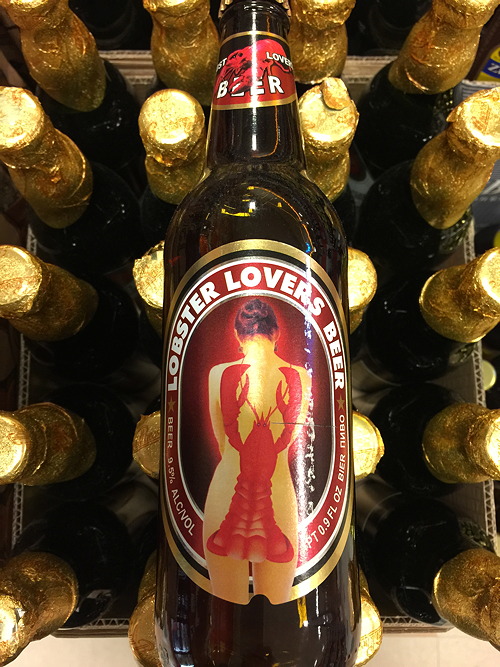
Posted By: Alex - Tue Aug 25, 2020 -
Comments (11)
Category: Inebriation and Intoxicants, Alcohol
Drunk Driving Defense
Back in 1971, Melvin Baker offered a novel defense for why he shouldn't have been charged with drunk driving. He was, he said, too drunk to have made an intelligent decision about whether to submit to the breathalyzer test — the results of which led to him being charged. He apparently argued this case all the way up to the New York Supreme Court.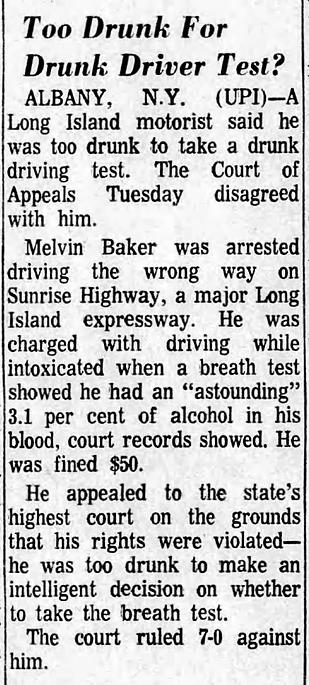
Santa Rosa Press Democrat - July 7, 1971
Details about this case are hard to come by, but this other brief article offers an explanation for why Baker persisted with his seemingly hopeless argument. Because if he had refused to take the test, he would only have had his license suspended. But having taken the test, and failed it, he also faced criminal prosecution. So it was all an elaborate, legalistic ploy to get the lighter penalty.

Long Beach Independent - Sep 7, 1971
Posted By: Alex - Thu May 14, 2020 -
Comments (2)
Category: Inebriation and Intoxicants, Law, 1970s, Cars
Smirnoff Leaves You Breathless
1958 ad campaign for Smirnoff Vodka. The ad copy about "breathless" drinkers who are "on the vodka wagon" makes me think of wheezing, out-of-breath drunks.
San Bernardino County Sun - Nov 6, 1958

Miami News - Oct 16, 1958

San Antonio Express - Sep 23, 1958
Posted By: Alex - Thu Oct 24, 2019 -
Comments (4)
Category: Inebriation and Intoxicants, Advertising, 1950s, Alcohol
Open Concept Bar
The Open Concept bar, recently opened in St. Louis, Missouri, doesn’t sell drinks. Instead, it sells time. Buy an hour’s worth of time at the bar, and you can drink as much as you want in that hour. The price is $10/hour for basic drinks, $20/hour for premium ones.Sounds like a bargain! But how does the bar plan to make money? Well, it turns out there actually are some limits to how much alcohol they'll serve you. From St. Louis magazine:
In other words, you can't actually have all you can drink in an hour. But what's the limit? It seems like they're being coy about that. I'm guessing it's about two drinks per hour. So, in essence, you're pre-paying for two drinks.

Posted By: Alex - Wed Oct 09, 2019 -
Comments (5)
Category: Inebriation and Intoxicants, Restaurants, Alcohol
Hallucinogenic giraffe livers
It's possible that the livers of some giraffes might be hallucinogenic when consumed. Although the claim is controversial.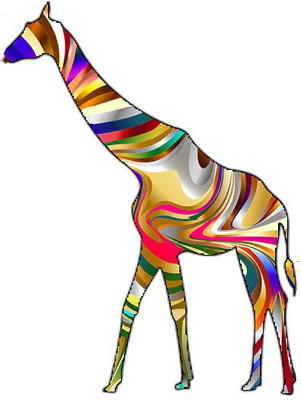
The idea was first introduced into the scientific literature in 1958 by anthropologist Ian Cunnison, in an article published in the obscure journal Sudan Notes and Records.
Cunnison had spent time with the giraffe-hunting Humr tribe of Sudan, and he reported that after a successful hunt they would often consume a drink called umm nyolokh made from the liver and bone marrow of the giraffe. Cunnison didn't try the drink himself, but its effects, as described to him by the Humr, seemed to be hallucinogenic, Here's the relevant passage in Cunnison's article:
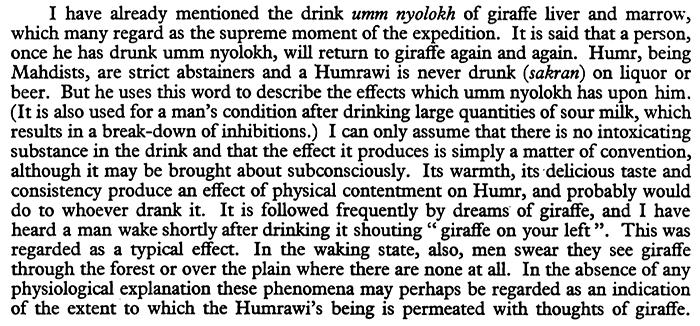
It's noted on Wikipedia that, if the reports from the Humr were accurate, “this claim would make the giraffe the first mammal to be discovered to contain a hallucinogen in its bodily tissues,” However, Cunnison himself was skeptical, suggesting that the perceived effects might be “brought about subconsciously.”
Cunnison’s article didn’t attract much attention until 1998, when Richard Rudgely discussed it in his Encyclopedia of Psychoactive Substances. Rudgely was far more willing to believe that the giraffe livers really were hallucinogenic.
Since then people have speculated that the giraffes in Sudan might have been consuming plants, such as Acacia trees, that contained psychoactive substances, which then concentrated in their livers.
But to date, to my knowledge, the issue remains entirely speculative because no one has gone to Sudan to find and test some of this umm nyolokh.
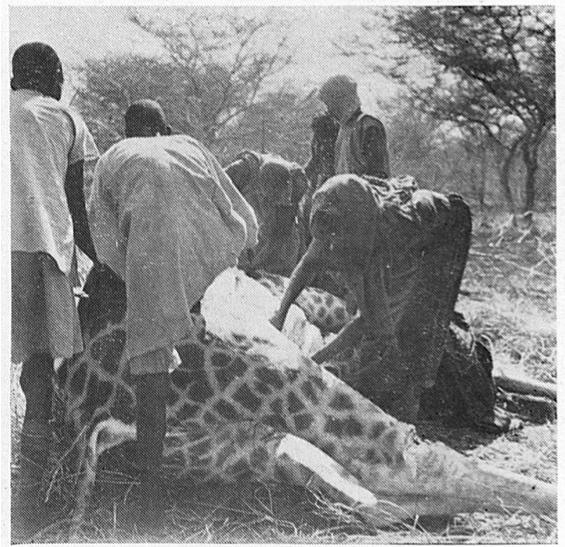
Members of the Humr tribe skinning a giraffe after a hunt.
Source: Sudan Notes and Records
Posted By: Alex - Wed Sep 11, 2019 -
Comments (4)
Category: Animals, Drugs, Psychedelic, Inebriation and Intoxicants
Cheese Whey Wine
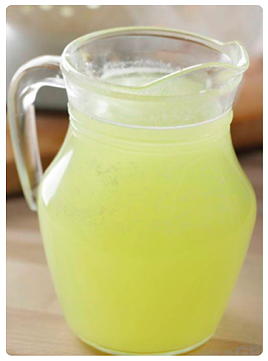
cheese whey
source: cheesemaking.com
One possibility was to dehydrate it into a protein powder that could be fed to livestock, or bodybuilders. But in the mid-1970s, researchers at Oregon State University hit upon a potentially more lucrative use: making wine out of whey. They detailed their study in a pamphlet titled “Utilization of Cheese Whey for Wine Production.”
The reason this was possible is because the lactose in whey will ferment, if one uses the right microorganisms. The end result was a whey wine that, according to the researchers, "was acceptable to a great majority of tasters, who preferred it slightly sweet.” Which doesn't sound exactly like a glowing recommendation. Nevertheless, the researchers were enthusiastic about the potential of whey wine:
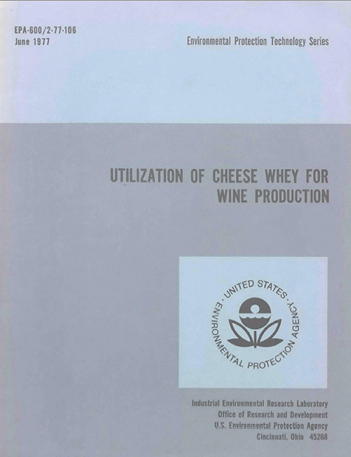
It doesn't seem that their dream of raking in the big bucks with whey wine ever panned out. The idea of whey-based alcohol products is still kicking around, however. Various gins and vodkas made from whey can be found, such as Bertha's Revenge Irish Milk Gin or Sheep Whey Gin. But I can't find any wines being made from whey.
There's more info about whey-based spirits at SevenFifty.com, and here's an article about an effort to make whey beer.
Posted By: Alex - Thu Sep 05, 2019 -
Comments (1)
Category: Food, Inebriation and Intoxicants, 1970s, Alcohol
Even Can’t Literally Cocktail
The Yuzu bar in Lakewood, Ohio is offering a new "menstrual-themed" cocktail to help raise money for a local women's shelter. From their facebook post:
Posted By: Alex - Fri May 17, 2019 -
Comments (4)
Category: Inebriation and Intoxicants, Body Fluids, Nausea, Revulsion and Disgust
Grasshopper Beer
Offered by Benchtop Brewing Co. of Norfolk, Virginia. The name of the beer is Chapulin Exchange, but the star ingredient is grasshoppers, as well as chipotle peppers and lime zest. The brewer won't say exactly how many grasshoppers each beer contains. But whatever the number is, I'll pass.More details: pilotonline.com
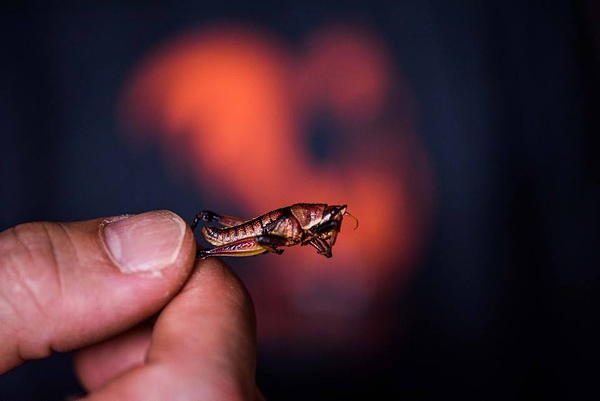
Posted By: Alex - Mon Mar 11, 2019 -
Comments (0)
Category: Inebriation and Intoxicants, Insects and Spiders

| Who We Are |
|---|
| Alex Boese Alex is the creator and curator of the Museum of Hoaxes. He's also the author of various weird, non-fiction, science-themed books such as Elephants on Acid and Psychedelic Apes. Paul Di Filippo Paul has been paid to put weird ideas into fictional form for over thirty years, in his career as a noted science fiction writer. He has recently begun blogging on many curious topics with three fellow writers at The Inferior 4+1. Contact Us |




